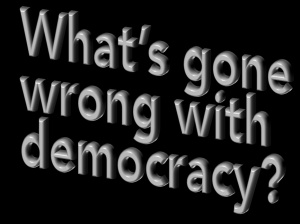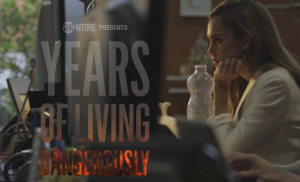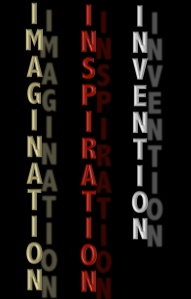 Facebook's acquisition of the Oculus company shows that big players are starting to take Augmented Reality (AR) glasses seriously -- leading the 22 year old daughter of a friend to comment "that stuff looks really lame."
Facebook's acquisition of the Oculus company shows that big players are starting to take Augmented Reality (AR) glasses seriously -- leading the 22 year old daughter of a friend to comment "that stuff looks really lame."
Ah, but the question of whether something "looks lame" is partly a matter of implementation... recall what the first cell phones were like? In the future you will be at an extreme disadvantage without access to augmented reality tools. These do not have to be worn all the time. But to refuse them entirely will be considered pretentious... like a person of our age loudly announcing "I refuse to own a cell phone!"
Still, we face a difficult transition period -- perhaps 15 years -- when the proper rules and procedures for AR will be worked out. Consider the lawsuits, when people who are distracted by images inside their eyewear, step off the curb in front of moving cars! In my novel Existence I predict what some of those rules and procedures might turn out to be. For example, requiring that dangerous objects and curbs and nearby persons be outlined in “collision-avoidance yellow. In the meantime, many lawyers will do well.
That is one reason why Google deliberately designed its "Glass" product to be les than full-AR -- offset from the central cone of forward vision. The data that it presents do not cover the field of view needed for walking and safety. Google is happy to let smaller companies do those experiments... and deal with the legal transitions.
 In Existence, I contemplated what Occulus and Glass may look like, more than a decade from now. One illustration (by Patrick Farley) shows a reporter with cyb-active hair... sensors at the tips of stalks that can rise up and look around, giving her the view of a very tall person and providing awareness of things going on behind her.
In Existence, I contemplated what Occulus and Glass may look like, more than a decade from now. One illustration (by Patrick Farley) shows a reporter with cyb-active hair... sensors at the tips of stalks that can rise up and look around, giving her the view of a very tall person and providing awareness of things going on behind her.
As for the Facebook purchase, Mark Zuckerberg in a conference said "Oculus and VR have the potential to change the way we play, work, and communicate." And that social networks today are about "sharing moments." but in the future it will be about "sharing experiences". We've heard those promises for 20 years. For gaming, I see the potential, but to communicate or to engage in a social network, is there really a need/desire for a deep immersion? Alas, there are basic reasons why the Web -- and Facebook in particular -- have not enhanced discourse or truth or negotiation or any adult activities at all. I explain those reasons here:
Unfortunately, that paper is too "scholarly" to be influential. It merely gets to the underlying core of why the Internet has never achieved its potential as a problem-solving system. Alas.
== Other Authors ==
 In Can We Avoid a Surveillance State Dystopia? Ramez Naam, the brilliant author of the novels Nexus and Crux as well as the nonfiction The Infinite Resource, offers his own view on the NSA Imbroglio and our chances of staving off the Big Brother scenarios, achieving instead an open world of freedom and accountability: "And every organization in the world must now be on notice - everything it does may eventually become known."
In Can We Avoid a Surveillance State Dystopia? Ramez Naam, the brilliant author of the novels Nexus and Crux as well as the nonfiction The Infinite Resource, offers his own view on the NSA Imbroglio and our chances of staving off the Big Brother scenarios, achieving instead an open world of freedom and accountability: "And every organization in the world must now be on notice - everything it does may eventually become known."
(Flash news! Ramez is on the list, nominated for the Campbell Award for Best New Writer in science fiction. Congratulations Ramez! And all the other nominees.)
All right then, where is the "end of history" promised by Francis Fukayama, after the fall of the Berlin Wall? The purported rush of the entire world to embrace liberal democracy? That did seem to be the way momentum was heading, in the Clinton era, but the 21st Century became a lot rougher -- a more cynical and dogmatic era. Take this assessment from Freedom House in What's Gone Wrong With Democracy?
 "The progress seen in the late 20th century has stalled in the 21st. Even though around 40% of the world’s population, more people than ever before, live in countries that will hold free and fair elections this year, democracy’s global advance has come to a halt, and may even have gone into reverse. Freedom House reckons that 2013 was the eighth consecutive year in which global freedom declined, and that its forward march peaked around the beginning of the century. Between 1980 and 2000 the cause of democracy experienced only a few setbacks, but since 2000 there have been many. And democracy’s problems run deeper than mere numbers suggest. Many nominal democracies have slid towards autocracy, maintaining the outward appearance of democracy through elections, but without the rights and institutions that are equally important aspects of a functioning democratic system…. Faith in democracy flares up in moments of triumph, such as the overthrow of unpopular regimes in Cairo or Kiev, only to sputter out once again."
"The progress seen in the late 20th century has stalled in the 21st. Even though around 40% of the world’s population, more people than ever before, live in countries that will hold free and fair elections this year, democracy’s global advance has come to a halt, and may even have gone into reverse. Freedom House reckons that 2013 was the eighth consecutive year in which global freedom declined, and that its forward march peaked around the beginning of the century. Between 1980 and 2000 the cause of democracy experienced only a few setbacks, but since 2000 there have been many. And democracy’s problems run deeper than mere numbers suggest. Many nominal democracies have slid towards autocracy, maintaining the outward appearance of democracy through elections, but without the rights and institutions that are equally important aspects of a functioning democratic system…. Faith in democracy flares up in moments of triumph, such as the overthrow of unpopular regimes in Cairo or Kiev, only to sputter out once again."
It's a thought-provoking article… though to clarify, not all futurists were sanguine that this transition would be easy. In 1985 I predicted both the fall of the Warsaw Pact and the rise of a militant macho resistance to tech-modernist ways -- either a Latin or Hindi or (most-likely) Muslim rejection of the West's prescription how to live. And that crises of oligarchy and propaganda and dogma always threaten traditions of pragmatic, good-natured and science-based negotiation.
Still, the article offers hope: "At the same time, as Alexis de Tocqueville pointed out in the 19th century, democracies always look weaker than they really are: they are all confusion on the surface but have lots of hidden strengths. Being able to install alternative leaders offering alternative policies makes democracies better than autocracies at finding creative solutions to problems and rising to existential challenges, though they often take a while to zigzag to the right policies."
The trick is not to let ourselves be tricked into cynicism – like the “Tytler Calumny” lie that democracies are inherently weak… or the idiot-plot message in most Hollywood films, preaching that institutions always fail and citizenship is futile.





























